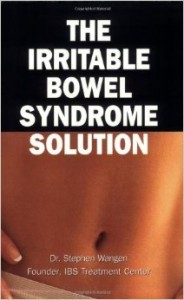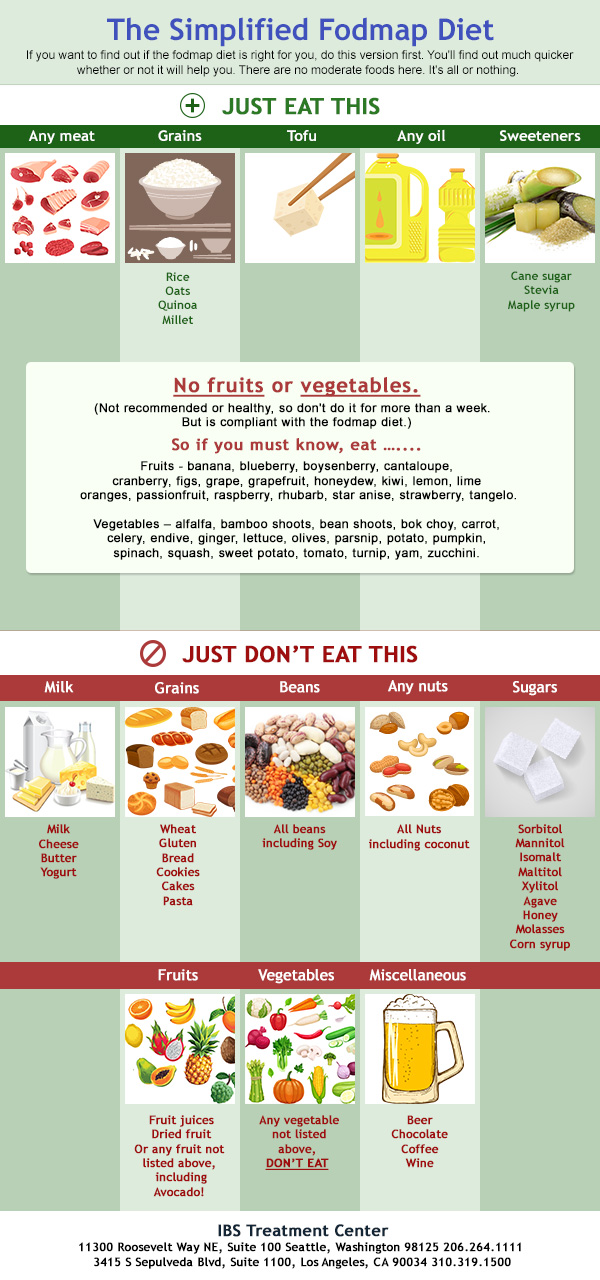Feeling Bloated and Gassy?
Why It Happens and How to Fix It
Almost everyone feels it sometime, and some people feel it more often than they’d like to admit. The feelings of being bloated, or gassy, or both. Dealing with stomach and intestinal issues that lead to belching, flatulence, and all-around ugh can really ruin your day.
First, the good news: some of this is your body just doing normal bodily things. The symptoms often come from normal processes that create gas inside everyone’s body as they’re digesting food. That process creates hydrogen, methane, and other gasses, which causes your burping, your flatulence and even the bloating and swelling of your abdomen.
In fact, the normal adult passes gas between a dozen and 20 times per day. But things can get excessive. And often do. So what causes excessive gas and bloating?
What Causes Gas and Bloating?
The excess gas and bloating — the stuff that makes you feel especially gassy — can be caused by a combination of things. You may be swallowing too much air (yes, you can do that — you swallow air all of the time). But more often, the symptoms come from your body’s digestive system not working perfectly to digest certain foods and beverages.
Normally, most food is digested in your stomach and small intestine. Improper digestion here can produce excess gas in this part of your digestive tract. But food that you have a more difficult time breaking down also passes into your large intestine, where it ferments. This produces methane and hydrogen — “gas.”
Are Gas and Bloating Symptoms of IBS?
Often, people who have excessive gas and bloating have something called irritable bowel syndrome, or IBS. (IBS can have other symptoms as well, including pain, cramping, diarrhea and constipation.)
Dr. Stephen Wangen, who suffered from IBS himself as a young man, is the award-winning author of two IBS books on digestive disorders and an expert on treating gas and bloating from IBS.
He says IBS gas and bloating often is due to one of three broad areas of problems in a person’s digestive system:
- Imbalance in Gut Microbes: The human gut contains trillions of microorganisms that improve our health and help our body’s digestive system. Every human has a different balance of those microbes, including bacteria. If someone has too little of certain “good bacteria,” or too much bacteria that shouldn’t be at high levels in the gut, that can cause problems with digestion.
- Food Allergies, Intolerances and Sensitivities: A person can have not only specific food allergies that cause problems, but can also have intolerances and sensitivities to certain foods — almost any kind of food — that can cause you to react to the food and thus cause problems in your digestive tract.
- Deficiencies of Certain Important Chemicals in Our Guts: Your body might have deficiencies in certain enzymes you need to properly break down food, or even deficiencies in the hydrochloric acid in your stomach that helps to break down food.
Special Tests to Detect the Source of Bloating and Gas Problems
IBS and gas and bloating experts can conduct specific tests that can provide more information about what factors may be causing your digestive problems. The results of those tests will help your doctor and you decide on a treatment plan.
Foods and Beverages That Can Cause Gas and Bloating Symptoms
It’s important to remember that often the real cause of your gas and bloating is what’s already happening in your gut and digestive system. Most often, certain foods or beverages you consume are causing a reaction because of those underlying problems.
“There isn’t a food that’s good for everybody or bad for everybody,” Wangen says. “We’ve had patients react to anything. They could be reactive to eggs or bananas or almonds. Literally, anything in the diet could be a problem. It’s just figuring out in each individual which food is it. That’s the whole process we go through to help people get better.”
Still, there are foods and beverages that are common culprits for a large number of people, because of its characteristics.
The list of potentially “difficult” foods and beverages is long:
- Foods with high fat content
- Fried or spicy food
- Carbonated beverages
- Alcoholic beverages
- Artificial sweeteners, like sorbitol
- Fructose
- High-fiber foods
- Cruciferous vegetables like broccoli, Brussels sprouts, and cauliflower
- Prunes or prune juice
- Cabbage
- Whole grains like wheat, barley, and farro
- Foods that contain what are called FODMAP carbohydrates. That acronym stands for fermentable oligosaccharides, disaccharides, monosaccharides, and polyols. These type of carbohydrates include:
- Fructose, including honey, high-fructose corn syrup, and agave
- Foods containing lactose like milk, cheese, and other dairy products
- Onions and garlic
- Legumes like beans, soybeans and lentil
- Fruits with pits or seeds like apples, pears, and peaches
These foods also seem more likely to specifically cause bloating symptoms:
- Cruciferous vegetables
- Fruits like apples, pears, and peaches
- Beans and lentils
- Corn
- Whole grains
- Raw spinach
- High-fiber food
- Pizza
- Canned soup
- Alcoholic beverages
- Sweeteners
- Dairy products
- Carbonated beverages
What helps many people is to keep a food diary and make notes about how their body responds to certain foods. Avoiding or reducing consumption of those foods can significantly alleviate gas symptoms. Still, for many people, the special tests to understand the particulars of their digestive system can be very helpful.
They’re called FODMAP carbohydrates, and they are often enemy #1 with people who experience gas and bloating from irritable bowel syndrome, or who experience gas and bloating in general.
The acronym FODMAP stands for “fermentable oligosaccharides, disaccharides, monosaccharides, and polyols.” They sound more complicated than they are, but they are found in a wide range of foods. And any of them can cause significant gas and bloating symptoms.
At least one of the FODMAP carbohydrates can be found in a wide range of vegetables including artichokes, asparagus, Brussels sprouts, broccoli, and onions. FODMAPs are also found in many fruits with pits or seeds including apples, pears, peaches, and mangoes — and anything with fructose, like honey and agave.
FODMAP carbohydrates are also found in wheat, rye and any food with lactose, including most dairy products.
So FODMAPs are found in a lot of foods, and not necessarily unhealthy foods. In fact, many of them are very good for you. But they are short-chain carbohydrates, which means the human body sometimes doesn’t digest them well.
They quickly move through your small intestine — where much of your food is digested — to your large intestine. There they ferment, producing gas. They also create a double-whammy: they attract water into the large bowel, which can cause more bloating and diarrhea.
So, eliminating or reducing FOMAPs can be very helpful for some people who experience frequent bloating and gas. Research has found, for example, that about three-quarters of IBS patients benefited from a low-FODMAP diet.
As the list of FODMAPs suggests, a low-FODMAP diet can be very restrictive. IBS experts can conduct tests that can be more specific on the causes of your gas and bloating, and the foods you might avoid. In some cases, doctors and dietitians suggest people eliminate all FODMAPs from their diet at first, and then add back FODMAPs into their diet one at a time to determine which ones might be causing the most trouble. That way, they will be able to continue to consume the FODMAPs that cause them no trouble — and their diet may not be so restricted.
Can Eating a Lot of Protein Make You Bloated?
Protein can sometimes cause gas and bloating problems because your digestive system needs a large amount of stomach acid to digest protein properly. When your gut doesn’t have sufficient acid, the protein ferments, causing gas.
But protein is important for a healthy body, of course. So, there are things you can do to help make sure your body digests it properly. Those include:
- Eat your proteins at the beginning of a meal. That means the stomach acid — or hydrochloric acid — available at the beginning your meal won’t be used up by other non-protein foods and plenty of acid will remain to digest the protein.
- Take one of many digestive enzymes available on the market that can help add stomach acid that can aid in digestion.
Behaviors that Can Cause Gas and Bloating Symptoms
Sometimes, things you do can exacerbate your gas and bloating problems. Behaviors that can cause problems include overeating, smoking, and swallowing excess air while you’re eating or drinking or talking. You can swallow too much air when you eat too fast, talk while you eat, drink from a straw, suck hard candy, or chew gum.
Often the air swallowed when you do engage in these behaviors results in belching. When it doesn’t, the air can pass through the digestive track and be released through flatulence.
Taking some medicines or nutritional supplements can also cause excessive gas or bloating. Examples include:
- Antacids like Pepcid, Prilosec, Nexium
- Antibiotics
- Aspirin
- Birth control medications
- Blood pressure medications
- Cholesterol medications
- Diabetes medications
- Diarrhea medicines like Imodium, Kaopectate or Pepto Bismol
- Fiber supplements like Citrucel and Metamucil
- Iron pills and multivitamins
- Narcotic pain medicines
- Probiotics (even the good guys can turn bad!)
- Benadryl, or diphenhydramine
- Steroid medications
Check with your doctor before you adjust how you take medications or supplements that might be causing problems.
How to Get Rid of Gas and Bloating
Avoiding certain foods, behaviors, and medicines may relieve many of your gas and bloating symptoms. But if they persist, it may be helpful to see your doctor, or a specialist in IBS gas and bloating.
An IBS specialist can “do significant investigative work — the kind of work your typical doctor doesn’t do, because they’re not an expert in this area,” says Wangen.
The tests an IBS specialist will perform will detect whether:
- You have something called small intestine bacterial overgrowth or SIBO. This means you have bacteria growth in your digestive tract that shouldn’t be there.
- Your digestive tract is missing the right amount of “good bacteria” that your body needs.
- You have an overgrowth of candida in your gut. Candida is a form of yeast, which is supposed to be in your gut in small amounts to aid digestion — too much can cause digestive and other problems.
- Whether your stomach is under-producing the needed amount of stomach acid, or hydrochloric acid.
- Whether you have a food sensitivity or allergy that you didn’t know you had.
“These tests allow a doctor to create a treatment plan for the patient that specifically addresses the cause of the problem,” Wangen explains. Patients can then get treatment that reduces components in your digestive system that shouldn’t be there or helps to bolster substances that your digestive system needs to work properly.
How to Reduce Gas in Your Stomach
The good news is that there are some preemptive measures you can do on your own before you get to see a specialist that can diagnose the cause of your issues. These include:
- Avoid or reduce consumption of foods and beverages known to cause problems.
- Avoid certain foods in combination, like fruits with proteins and starches with proteins
- Stop smoking
- Drink fluids before meals. Drinking liquids with meals may decrease stomach acid, which means you can’t digest food as well. Instead, drink fluids 30 minutes before a meal.
Eating and drinking fast contributes to swallowing more air, which causes more gas. Here are some tips to help combat gas and bloating:
- Eat smaller portions
- Stay properly hydrated
- Get exercise, physical activity
- Do yoga
- Meditate to reduce stress, which can exacerbate gas and bloating
- Eat in a relaxing environment
- Reduce salt intake
- Drink apple cider vinegar
- Drink chamomile tea
- Eat ginger, pumpkin, peppermint, cucumbers, bananas, papaya, asparagus, fennel seeds, or cloves
- Eat more foods that contain healthy probiotics that help digestion, including yogurt, kefir, sauerkraut, and pickles — Or take a probiotic supplement.
- Regular massages can help with some bloating
What Is the Best Medication for Gas and Bloating?
There are a number of medications that have been used to fight gas and bloating. However, these medications don’t always solve the problem and can simply mask the real culprit. Among them are:
- Pills or liquids containing alpha-galactosidase, an enzyme that helps your digestive system break down complex sugars in beans and vegetables. (The product Beano includes alpha-galactosidase.)
- Tablets or capsules containing simethicone (including brand name products such as Mylanta Gas and Gas-X). Simethicone helps to gather together gas bubbles in your stomach, which allows you to get rid of them more easily.
- Activated charcoal
- Lactase supplements
- Digestive enzymes
- Prescription medications like Prilosec, Zantac, and Pepcid
- Lotronex and Zelnorm, prescription medications for women
Most often, doctors recommend you take the medicines at the beginning of a meal if you’re trying to combat the onset of gas and bloating.
Other Medical Conditions that Could Be the Cause of Gas and Bloating
Most often, gas and bloating are the result of problems in your digestive system. But sometimes, the gas and bloating can be symptoms of a specific medical condition. They could be symptoms of:
- Upper gastrointestinal disorders, including peptic ulcers or gastroesophageal reflux disease, or GERD
- pylori infection, which sometimes leads to stomach ulcers
- Constipation
- Sleep apnea
- Hiatal hernia
- Gastroparesis
- Improperly fitted dentures
- Chronic stress
- Premenstrual syndrome or menstrual period
- Pregnancy, when a woman’s body increases production of progesterone, a hormone that relaxes muscles throughout body
In very rare cases, the symptoms could be symptoms of more serious conditions, including:
- Colon cancer
- Cancers of the abdomen, digestive tract, genitourinary or reproductive organs
- Celiac Disease
- Crohn’s disease
- Ulcerative colitis
- Diabetes
- Gallstones
- Physical obstructions, such as scarring of the stomach opening
- Inflammatory bowel disease
- Bowel obstruction
- Liver disease
- Pelvic inflammatory disease
When to Talk to a Doctor
Sometimes, the uncomfortable symptoms of bloating and gas can be relieved through behavioral or dietary modifications. If the symptoms continue to be uncomfortable for a few weeks, and are embarrassing or affect your ability to participate in normal activities, you should consider seeing your doctor or an IBS expert.
You should especially see a doctor if and when:
- Your gas is excessive and painful or chronic
- You have persistent diarrhea
- You have persistent or severe abdominal pain
- You have bloody stools, or they change in color
- You have unintended weight loss
- You have chest discomfort
- You have a fever
- You are vomiting
- You can’t eat or drink
- You feel faint or pass out
- You have palpitations
- You have shortness of breath
- You are pregnant and have pain
Find Out the Cause of Your Gas and Bloating
The IBS Treatment Center offers specialized testing to determine what is causing your gas or bloating, and we find that most patients feel and look much better once they address the root cause of the problem. You can watch this IBS video to see how we treat gas and bloating. Contact us today for help finding the cause of your gas and bloating issues.



